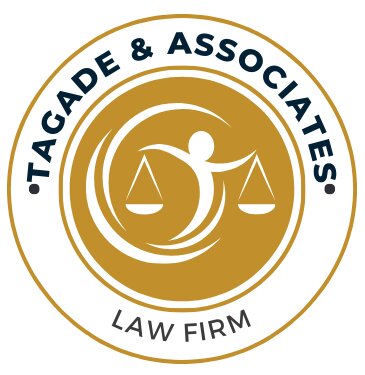Best Collaborative Law Lawyers in Nagpur
Share your needs with us, get contacted by law firms.
Free. Takes 2 min.
Free Guide to Hiring a Family Lawyer
List of the best lawyers in Nagpur, India
About Collaborative Law in Nagpur, India
Collaborative Law in Nagpur, India, is a legal approach focused on resolving disputes amicably outside the traditional courtroom setting. It involves cooperation between parties and their lawyers to reach a mutually beneficial agreement. This method is becoming increasingly popular, especially in family law, as it emphasizes open communication and confidentiality. Collaborative Law aims to reduce the emotional and financial burden of legal disputes by fostering a non-adversarial environment where parties can work together towards a solution that suits all involved.
Why You May Need a Lawyer
There are several situations where you might require a lawyer experienced in Collaborative Law. Common scenarios include divorce, child custody, and property settlements, where parties prefer a constructive dialogue over litigious proceedings. Collaborative Law is also beneficial in business disputes when maintaining a professional relationship is desirable. This approach can help preserve relationships by ensuring decisions are considerate of all parties' needs and interests.
Local Laws Overview
In Nagpur, as in the rest of India, Collaborative Law is supported by legal frameworks that emphasize alternative dispute resolution (ADR). Indian law promotes ADR mechanisms such as arbitration, mediation, conciliation, and negotiation, aligning with the principles of Collaborative Law. Key legislation pertinent to family law, such as the Hindu Marriage Act and Guardians and Wards Act, can be navigated through a collaborative lens to ensure compliance while seeking peaceful settlements. While collaborative law is not formally recognized as a separate entity, it draws on these existing frameworks to provide a cohesive strategy for dispute resolution.
Frequently Asked Questions
What is Collaborative Law?
Collaborative Law is a legal practice focused on voluntary, cooperative dispute resolution outside the court. It involves both parties working together with their lawyers to achieve a mutually agreed-upon settlement.
How does Collaborative Law differ from mediation?
While both aim for amicable resolutions, Collaborative Law entails each party having their own lawyer who collaborates to reach an agreement, unlike mediation, which typically involves a neutral third-party mediator without offering legal advice.
Is Collaborative Law legally binding?
Yes, any agreement reached through Collaborative Law can be formalized into a legally binding contract once all parties consent. It must comply with relevant local laws to be enforceable.
What are the benefits of choosing Collaborative Law?
Collaborative Law offers reduced legal costs, faster resolution, confidentiality, and the preservation of relationships through constructive dialogues and cooperative problem-solving.
Can any lawyer practice Collaborative Law?
While any lawyer can theoretically engage in Collaborative Law, those who have specific training and experience in collaborative practices are better equipped to navigate this process effectively.
Are there any cases where Collaborative Law is not suitable?
Collaborative Law might not be suitable if one party is unwilling to negotiate in good faith or in situations involving domestic violence or severe power imbalances.
How long does the process usually take?
The length of the process depends on the complexity of the case and the willingness of the parties to cooperate. However, it generally takes less time than going through traditional litigation.
What happens if parties can't reach an agreement?
If an agreement cannot be reached, parties have the option to pursue traditional litigation. However, they must then hire new attorneys, as the collaborative lawyers can no longer represent them in court.
What should I prepare for my first meeting with a collaborative lawyer?
It's beneficial to prepare an overview of the issues you wish to resolve, documents relevant to the dispute, and a list of your goals and priorities.
Is Collaborative Law cost-effective?
Collaborative Law can be more cost-effective than litigation, as it usually requires less time to resolve disputes, leading to lower legal fees and associated costs.
Additional Resources
For further assistance, you may contact the Nagpur District Court for guidance on legal procedures. Organizations such as the Mediation and Conciliation Project Committee (MCPC) of the Supreme Court and local legal aid societies can also provide invaluable resources and support. Engaging with certified collaborative lawyers and attending workshops on dispute resolution can enhance understanding and preparedness.
Next Steps
If you are considering Collaborative Law for resolving a dispute, start by consulting a lawyer who specializes in this field. They can help outline the process and guide you through the necessary steps. Prepare a list of topics you wish to address and be open to negotiation and compromise. By doing so, you'll be better equipped to achieve a satisfactory and sustainable resolution in a collaborative framework.
Lawzana helps you find the best lawyers and law firms in Nagpur through a curated and pre-screened list of qualified legal professionals. Our platform offers rankings and detailed profiles of attorneys and law firms, allowing you to compare based on practice areas, including Collaborative Law, experience, and client feedback.
Each profile includes a description of the firm's areas of practice, client reviews, team members and partners, year of establishment, spoken languages, office locations, contact information, social media presence, and any published articles or resources. Most firms on our platform speak English and are experienced in both local and international legal matters.
Get a quote from top-rated law firms in Nagpur, India — quickly, securely, and without unnecessary hassle.
Disclaimer:
The information provided on this page is for general informational purposes only and does not constitute legal advice. While we strive to ensure the accuracy and relevance of the content, legal information may change over time, and interpretations of the law can vary. You should always consult with a qualified legal professional for advice specific to your situation.
We disclaim all liability for actions taken or not taken based on the content of this page. If you believe any information is incorrect or outdated, please contact us, and we will review and update it where appropriate.








